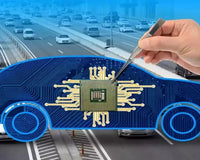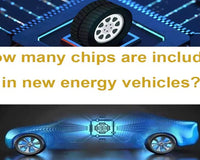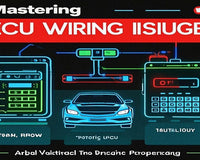
New energy vehicles (NEVs), particularly electric vehicles (EVs), utilize a variety of semiconductor chips that are crucial for their operation and efficiency. Chips in different positions play different roles, and together they control all the "behavior" of the entire car.
Power chip: MP4482 car IC power chips are the "heart" of smart cars. Whether it is transmission control and braking in the engine, drive system, or steering control, power chips are inseparable.


Microcontrollers Chips: For example, F280041PZS IC chips manage various vehicle functions, including battery management systems (BMS), motor control, and vehicle dynamics. They ensure that the vehicle operates smoothly and efficiently by processing data from various sensors.

Memory chip: Memory chips are the "memory" of smart cars. The demand for memory in the smart car industry is increasing day by day. In the post-mobile computing era, automotive storage will become an important emerging growth point in memory chips and a force that determines the market structure. FL256SAVF00 IC will be widely used in various fields of smart cars in the future.

Sensor Chips: These include various sensors that monitor vehicle performance, environmental conditions, and driver inputs. They play a vital role in systems like adaptive cruise control and collision avoidance.
The integration of these various types of chips is essential for enhancing the performance, safety, and efficiency of new energy vehicles.

The number of semiconductor chips in a new energy vehicle can vary significantly based on its complexity. Newer EVs may contain up to 3,000 semiconductors, compared to an average of 300-1,000 in traditional internal combustion engine (ICE) vehicles. This growth reflects the increasing demand for new energy chip semiconductors for the development of automotive technology. These semiconductor chips that are crucial for car operation and efficiency.









